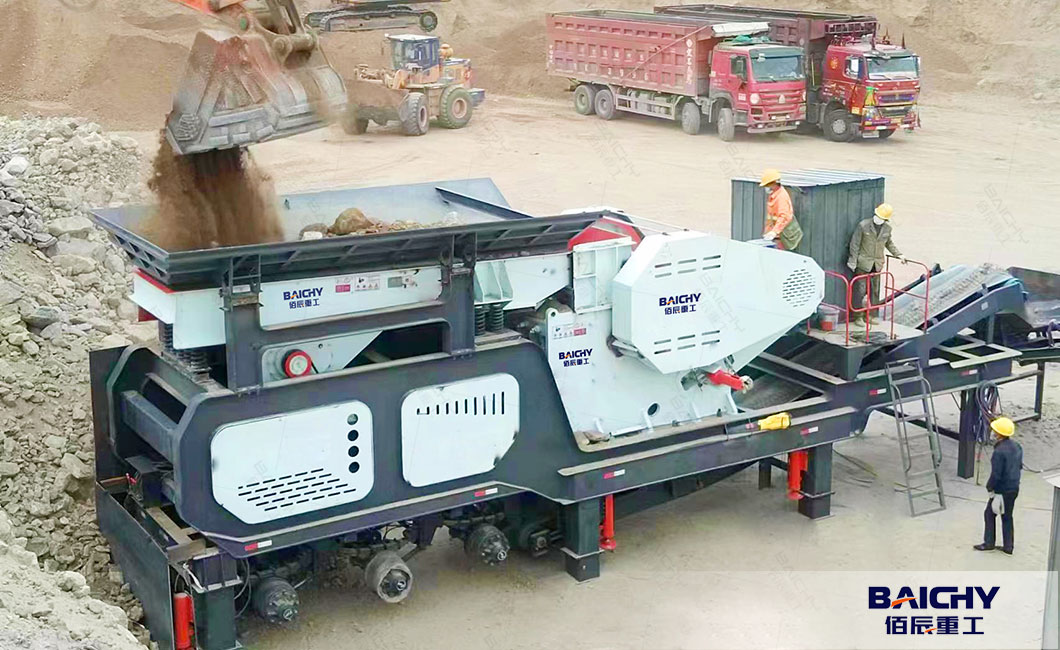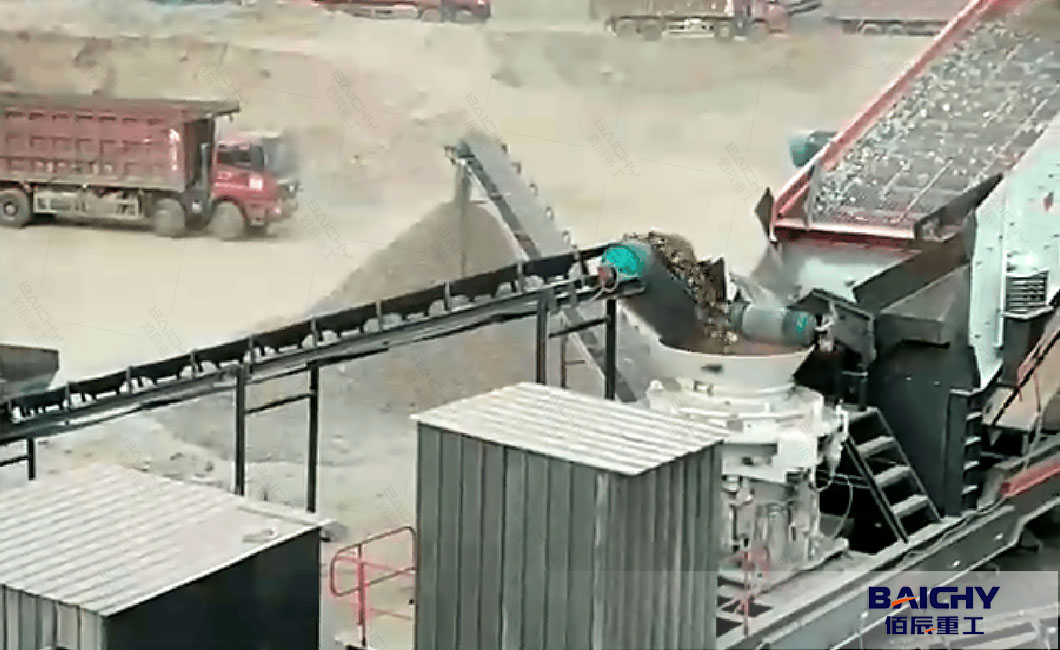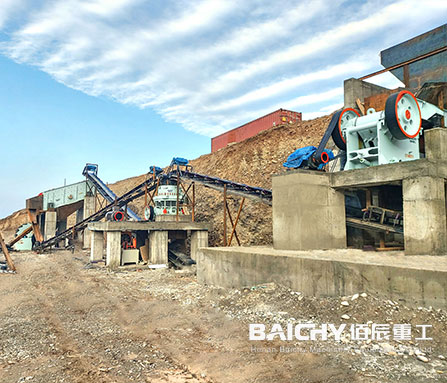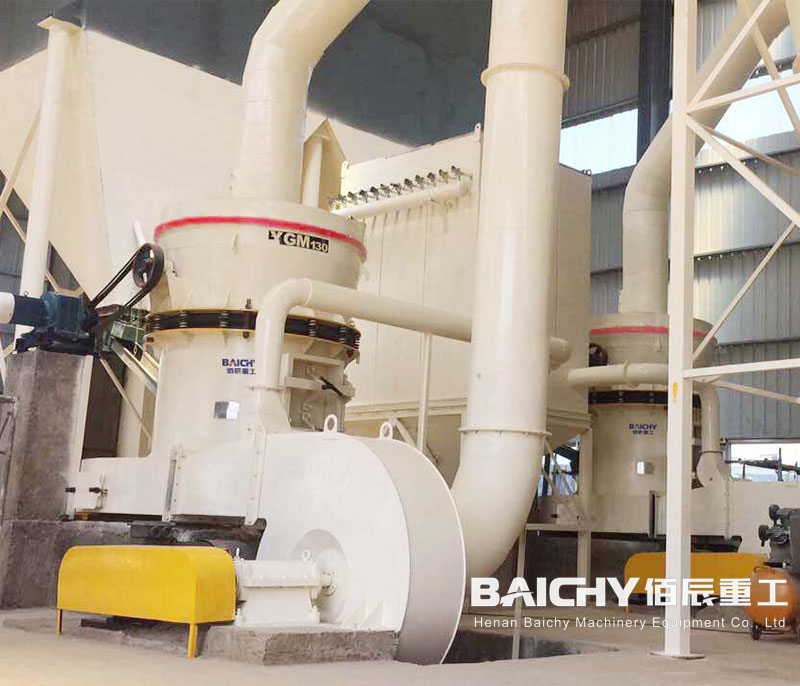Mobile stone crusher plants offer great flexibility and convenience in various construction and mining operations. However, like any equipment, they come with their own set of challenges and potential problems. Here are five common issues with mobile stone crusher plants that you may overlook:

Maintenance and Wear of Components
1. Quick Wear of Crushing Parts: Mobile stone crusher plants have key components like hammers, jaws, and impact bars that are constantly in contact with hard stones during the crushing process. For example, in a jaw crusher within the mobile plant, the jaw plates experience significant friction and impact forces. Over time, these parts wear out relatively quickly. The wear can lead to reduced crushing efficiency as the gaps between the crushing elements increase, allowing larger particles to pass through that should have been further reduced in size. Regular inspection and timely replacement of these wearing parts are essential but can sometimes be missed, especially if there's no strict maintenance schedule in place.
2. Complexity of Moving Parts Maintenance: Mobile crushers have various moving parts such as conveyor belts, vibrating feeders, and the crushers' own moving mechanisms. These parts need proper lubrication and adjustment regularly. For instance, if the conveyor belt's rollers aren't lubricated adequately or are misaligned, it can cause belt slippage or uneven material feeding, affecting the overall performance of the plant. However, due to the mobile nature of the plant, accessing and maintaining these parts in the field can be more challenging compared to stationary crushers, and this aspect might be overlooked.
Transportation and Mobility Challenges
1. Road Regulations and Permits: When moving a mobile stone crusher plant from one site to another, there are often specific road regulations to comply with. Depending on the size and weight of the equipment, special permits may be required. For example, in some areas, if the plant exceeds a certain width or axle load limit when being towed on public roads, it needs prior authorization. Failing to obtain these permits can result in fines or delays in getting the plant to the desired location. Operators sometimes underestimate or forget about these regulatory requirements.
2. Site Accessibility: Not all job sites have easy access. Mobile crushers might struggle to reach locations with narrow or rough roads, steep slopes, or limited space for maneuvering. For instance, if a quarry is located in a hilly area with a narrow access path, it can be difficult to position the mobile crusher properly. This can lead to additional costs for improving the access route or even make it impossible to use the mobile plant at that particular site, a problem that may not be fully considered during the initial planning.
Dust and Noise Emissions
1. Dust Suppression: During the crushing process, a significant amount of dust is generated. Mobile stone crusher plants usually have dust suppression systems like water sprays or dust collectors. However, these systems may not always be properly maintained or adjusted. For example, if the water spray nozzles get clogged or the dust collector's filters are full and not cleaned regularly, the dust will escape into the surrounding environment. This not only affects the air quality on-site but can also cause issues with nearby communities and may lead to complaints or regulatory violations that could have been avoided with better attention to dust suppression.
2. Noise Pollution: The operation of the crusher, along with associated equipment like motors and conveyors, creates noise. Mobile plants might be used closer to residential areas or other noise-sensitive locations without proper noise mitigation measures. Insufficient soundproofing or ignoring the need to operate during permitted noise hours can result in disturbances to local residents, which can be a significant problem that is sometimes overlooked until complaints arise.

Power and Fuel Supply
1. Power Requirements: Mobile crushers can be powered by electricity or diesel engines. If relying on electricity, ensuring a stable power supply at the job site can be tricky. For example, in remote areas where grid connection is unreliable, power outages can disrupt the crushing operation. There may be a need for backup generators, but their capacity and maintenance are aspects that can be overlooked. When using diesel engines, fuel availability and quality are concerns. Poor-quality fuel can cause engine performance issues, reduced power output, and increased emissions, yet ensuring a proper fuel supply and using high-quality fuel might not always be given due attention.
2. Fuel Consumption and Cost: Mobile stone crusher plants can consume a significant amount of fuel depending on their workload and operating hours. Operators may not accurately estimate the fuel consumption in advance, leading to unexpected cost overruns. Additionally, fluctuations in fuel prices can impact the overall operating budget of the plant, and without proper planning and monitoring of fuel usage, this can become a financial burden that was underestimated during the initial setup.
Operator Training and Safety
1. Lack of Adequate Training: Operating a mobile stone crusher plant requires knowledge of its controls, understanding of the crushing process, and skills to handle any malfunctions or emergencies. However, operators may not always receive comprehensive training. For example, they might not know how to properly adjust the crusher settings for different types of materials or how to respond when a conveyor belt jams. This lack of training can lead to inefficient operation and even pose safety risks.
2. Safety Hazards: Mobile crushers have several safety hazards like moving parts that can cause entanglement, falling materials during feeding or discharging, and potential electrical hazards. Safety guards and warning systems may be present but can be bypassed or not used correctly if operators are not well-versed in safety protocols. Ignoring proper safety measures can result in serious accidents that could have been prevented with better training and enforcement of safety regulations.
While mobile stone crusher plants offer numerous benefits in terms of flexibility and efficiency, it is essential to be aware of the potential challenges they pose. By proactively addressing maintenance needs, environmental concerns, logistical issues, energy consumption, and regulatory compliance, operators can mitigate these problems and ensure the smooth and sustainable operation of their mobile stone crusher plants.
Henan Baichy Machinery Equipment Co., Ltd. is a mining machinery manufacturer integrating R&D, production and sales. Mobile stone crusher is one of its core production equipment. It has mature technology and processes, complete models and configurations, and technical engineers can tailor production line configuration plans for you. We have good after sale service and problem solutions for mobile stone crushing plant. If you are interested in the mobile stone crusher, please click on the online consultation to contact us. Baichy Machinery is dedicated to serving you 24 hours a day!







 2025-12-31
2025-12-31





















 86-15093113821
86-15093113821
 86-15093113821
86-15093113821

